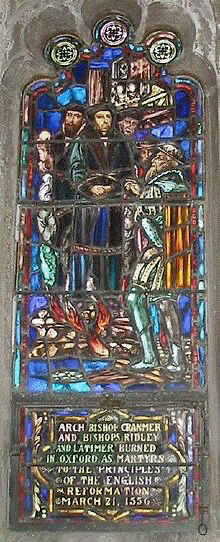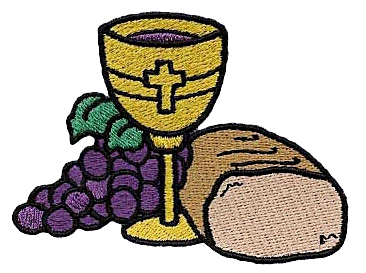
Transubstantiation (or the change of the substance of Bread and Wine) in the Supper of the Lord, cannot be proved by holy Writ; but is repugnant to the plain words of Scripture, overthroweth the nature of a Sacrament, and hath given occasion to many superstitions.
The Body of Christ is given, taken, and eaten, in the Supper, only after an heavenly and spiritual manner. And the mean whereby the Body of Christ is received and eaten in the Supper is Faith.
The Sacrament of the Lord's Supper was not by Christ's ordinance reserved, carried about, lifted up, or worshipped.
- "Wherefore our duetie is, to come to these holy misteries, with moste heartie thankes to bee geven to almightie GOD, for his infinite mercie and benefites geven and bestowed upon us his unworthye servauntes, for whom he hath not onely geven his body to death, and shed his bloude, but also doothe vouchesave in a Sacrament and Mistery, to geve us his sayed bodye and bloud to feede upon spiritually."
- ALMIGHTYE and everlyvyng* GOD, we moste hartely thanke thee, for that thou hast vouchsafed to feede us in these holy Misteries, with the spirituall foode of the moste precious body and bloud of thy sonne, our saviour Jesus Christ,
- Discarded anything that hinted at Christ's death being insufficient.
- Not a sacrifice being performed by a priest
- Christ's death was "once offered, full, perfect sufficient sacrifice, oblation, and satisfaction for the sins of the whole world."
